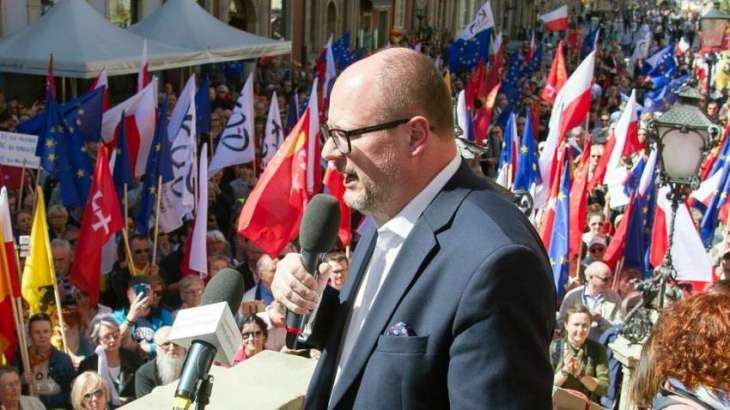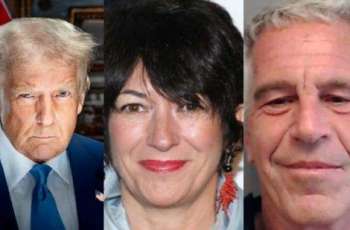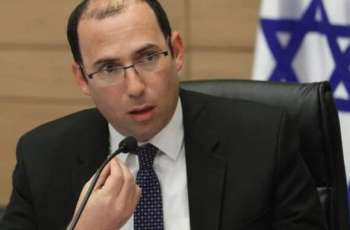Pawel Adamowicz, the mayor of the Polish city of Gdansk, who became a victim of a knife attack, died in hospital on Monday
MOSCOW (Pakistan Point News / Sputnik - 14th January, 2019) Pawel Adamowicz, the mayor of the Polish city of Gdansk, who became a victim of a knife attack, died in hospital on Monday.Adamowicz was attacked at a charity concert late on Sunday, sustained several wounds and underwent five hours of surgery. A 27-year-old suspect with a criminal record was arrested over the attack.
The Gdansk mayor was stabbed at a charity concert late on January 13. He died in hospital after undergoing five hours of surgery. A 27-year-old suspect with a criminal record was arrested over the attack.
On September 13, Brazilian presidential candidate Jair Bolsonaro was wounded during a campaign rally in the southeastern city of Juiz de Fora. The politician was hospitalized and the attacker was detained.
On June 26, local Mexican politician Raymundo Carmona was shot in the city of San Pedro Pochutla in southern Oaxaca state days before the general election. A politician from Mexico's Morena party, Emigdio Lopez Avendano, who was then running for local parliament, was killed along with four other party members a day earlier.
On June 14, a gunman opened fire on members of the Republican congressional baseball team in Alexandria, a city in the US state of Virginia, injuring several people, including Congressman Steve Scalise. The shooter was detained.
On May 25, former Greek Prime Minister Lucas Papademos was injured after an explosive device hidden inside an envelope detonated inside his car. Three other people, who accompanied Papademos, were also wounded.
On August 25, Turkish opposition Republican People's Party (CHP) leader Kemal Kilicdaroglu survived an assassination attempt after his convoy came under the attack from the woods in northeastern city of Artvin. Kilicdaroglu escaped the gunfire uninjured.
On July 15, Aidarous Zabidi, the governor of the Yemeni city of Aden, survived the fourth assassination attempt when a suicide car bomber hit his convoy. Al-Qaeda terrorist group (banned in Russia) claimed responsibility for the attack.
On June 16, UK Labour lawmaker Jo Cox was shot and stabbed multiple times by a gunman in West Yorkshire. Cox was airlifted to hospital, where she died of her injuries.
Islamic State terrorist group (banned in Russia) claimed responsibility for the assassination of Jaafar Mohamed Saad, the governor of the southern port city of Aden in Yemen. Saad was killed in a car bomb attack.
On October 17, mayoral candidate in the German city of Cologne, Henriette Reker, was stabbed on the final day of campaigning before the election. The politician underwent surgery and was later elected mayor of the city. The suspect, who was opposed to Germany's refugee policy, was found guilty of attempted murder.
On September 28, an explosion on the speedboat belonging to President of Maldives Abdulla Yameen Abdul Gayoom left country's first lady, presidential secretary and a bodyguard injured.
On May 26, Abdullah Thinni, Libya's former prime minister, survived an assassination attempt uninjured after gunmen opened fire on Thinni's motorcade.
On February 28, Russian opposition politician Boris Nemtsov was killed in the center of Moscow.
On November 16, Shukria Barakzai, an Afghan politician advocating women's rights, survived a suicide bombing in Kabul, sustaining minor injuries. The explosion killed three other people and injured 17.
In May, Ferhat Yildiz attempted to kill Turkish incumbent President Recep Tayyip Erdogan, then prime minister, during a rally of the ruling Justice and Development Party in Istanbul. Yildiz was sentenced to almost 12 years in jail.
On April 28, the mayor of the eastern Ukrainian city of Kharkiv Gennady Kernes was injured in an assassination attempt, receiving a gunshot wound.
An explosive device was detonated in the Pakistani capital of Islamabad on April 3, targeting the country's former President Gen. Pervez Musharraf. The bomb was hidden under a bridge on the route of the motorcade of the ex-president. The explosion occurred on the bridge immediately after the convoy passed by it. No one was injured. Two high-profile assassination attempts on Musharraf also took place in December 2003.
An influential Arab Democratic Party official, Abdul Rahman Diab, was killed in an assassination attempt in the Lebanese city of Tripoli on February 20. He was attacked by a group of armed men.
An assassination attempt against Libyan Deputy Prime Minister and Interior Minister Seddik Abdelkarim was made on January 29. Unknown persons opened fire on the prime minister at the entrance to the building of the Ministry of Internal Affairs. No one was hurt.
On April 29, an assassination attempt was made on Syrian Prime Minister Wael Halqi in the center of Damascus. A blast that targeted his convoy killed 10 people and injured 13 more. Halqi's personal security guard was among those dead, while the prime minister himself was not injured.
An assassination attempt was made against an Armenian presidential candidate, opposition National Self-Determination Union Chairman Paruyr Hayrikyan, on January 31. He received a gunshot wound to the shoulder.
On January 13, an unsuccessful assassination attempt was made against Iraq's finance minister. A bomb was detonated next to the last car of the minister's convoy. The minister, Rafi Issawi, was not injured and no one was hurt.
On January 5, an assassination attempt was made against Mohammed Magariaf, the chairman of the General National Congress in Libya. An unidentified attack took place at the hotel where Magariaf stayed, in the city of Sabha, which is located in the desert in the southwest of the country. Three security personnel were injured in the crossfire.
On February 22, Alexander Ankvab, who was then president of Abkhazia, was assassinated in the area of the republic's city of Gudauta. Unknown assailants detonated a land mine and then fired on the convoy of the president. Alexander Ankvab was not injured, but one of his guards died at the scene, and the second security officer died later in hospital.




